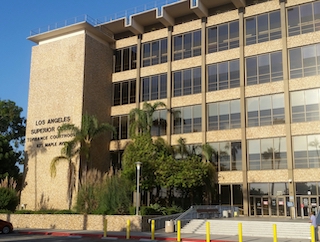In the current situation with COVID-19 virus transmission concerns within jails, bail and own recognizance (OR) release are granted more frequently than five years ago. In addition, the implementation of alternative methods of protecting public safety as encouraged by the California Supreme Court in In re Kenneth Humphries in 2021 has kept our pretrial jail population lower and more people awaiting trial while living at home.
This has renewed concern that such people will commit crimes, possibly a felony, while on bail or OR release. Penal Code § 12022.1 addresses this concern. Effective January 1, 1999, it adds a two-year term, consecutive to the primary term, for a defendant released on bail or on his or her own recognizance who commits a felony as a second offense at any time before his or her conviction on the primary offense becomes final.
We believe this enhancement will thus become a more common sentence enhancement, at least until the economy returns to normal and jail populations are not lowered for health concerns related to the coronavirus.
Section 12022.1 defines “primary offense” as the felony offense for which defendant is out of custody between pronouncement of judgement and the time the person actually surrenders or is otherwise returned to custody. The terms for the primary offense, the secondary offense and the two-year term for the enhancement must be imposed consecutively. Penal Code § 12022.1; People v. Burnes (1990) 224 Cal. App. 3d 1222, 247 Cal. Rptr. 466, overruled on other grounds in People v. McClanahan (1992) 3 Cal.4th 860, 872, n6, 12 Cal. Rptr. 2d 719.
 Torrance Courthouse
Torrance Courthouse
The enhancement can be a significant amount of time in certain situations. For example, when defendant is released on bail for a number of separate prior cases, and then commits a new felony offense before the prior cases become final, the two-year enhancement is added to the sentence in each of the prior cases, i.e., adding two, four, six, eight, etc. years to the sentence. Thus, a defendant on bail in two separate cases who commits a new felony is subject to two enhancements. People v. Mackabee (1989) 214 Cal. App. 3d 1250, 1262, 263 Cal. Rptr. 183; People v. Warriner (1988) 200 Cal. App. 3d 1352, 1355, 247 Cal. Rptr. 197.
However, the enhancement is not multiplied if defendant commits multiple felonies while on bail for a single prior offense. People v. Nguyen (1988) 204 Cal. App. 3d 181, 196, 251 Cal. Rptr. 40.
It is also worth noting, rather ominously, that the 12022.1 enhancement can be applied to a conviction for Penal Code § 1320.5 (failure to appear in court when released on bail). People v. Walker (2002) 29 Cal. 4th 577, 128 Cal. Rptr. 2d 75.
The enhancement can also be applied or imposed when defendant is out on bail for out-of-state offense. People v. Griffin (2005) 128 Cal. App. 4th 1112, 27 Cal. Rptr. 3d 734.
In reviewing sentences for crimes committed before January 1, 1998, one should know that the 12022.1 enhancements are subject to the double-the-base-term limit. People v. McClanahan (1992) 3 Cal. 4th 860, 12 Cal. Rptr. 2d 719.
A judge has discretion to strike the 12022.1 enhancement in the interest of justice (Penal Code § 1385). People v. Meloney (2003) 30 Cal. 4th 1145, 135 Cal. Rptr. 2d 602.
It merits mention that if defendant is placed in a diversion program, including but not limited to Prop 36, PC 1000, mental health diversion (Penal Code § 1001.36) judicial diversion (Penal Code §§ 1001.96 – 1001.96) or military diversion (Penal Code § 1001.80), even though he or she was released OR to enter the program, is not subject to the 12022.1 enhancement for a felony committed while on the diversion program. People v. Ormiston (2003) 105 Cal. App. 4th 676, 129 Cal. Rptr. 2d 567.
We present this article because we anticipate a “perfect storm” of sorts forming with a yet-to-fully rebound economy, causing continued economic hardship brought on by COVID-19 closings, and an inflated number of unemployed folks who may have committed some offense, but are released on OR or on bail, who commit further offenses before their primary offense is resolved.
 Torrance Courthouse
Torrance Courthouse